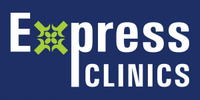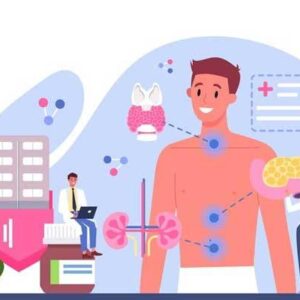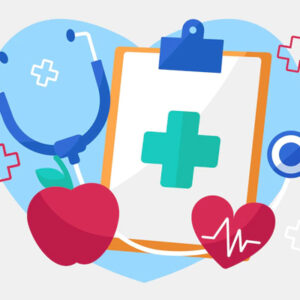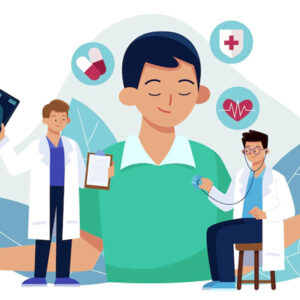Express Pro Health Package @ Rs. 5,999 (73 Parameters) including 4 doctor consultations
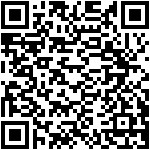 To Buy Express Pro Health Package, Instantly Scan QR code and call us at 1800-267-9191
To Buy Express Pro Health Package, Instantly Scan QR code and call us at 1800-267-9191
Today’s youth are very reluctant about their health and are getting to be inclined to illnesses. At the young age, they are really strong but that does not mean they are fit enough. So Express Healthcare Networx comes up with “Express Pro Health Package” for all young people upto 25 years age to detect any presence of diseases at an early stage. Express Pro Health Package consists of 73 test parameters including 4 consultations.
Express Pro Health Package – Test Parameters
PATHOLOGY
DIAGNOSTICS
CONSULTATION
TSH stands for thyroid stimulating hormone. A TSH test is a blood test that measures this hormone. The thyroid is a small, butterfly-shaped gland located near your throat. Your thyroid makes hormones that regulate the way your body uses energy.
BMI: The body mass index or Quetelet index is a value derived from the mass and height of an individual. The BMI is defined as the body mass divided by the square of the body height, and is universally expressed in units of kg/m², resulting from mass in kilograms and height in metres.
Total BFA: Body fat percentage tells you what your weight is comprised of. The fat percentage is the percentage of body fat mass (the weight of the fat) in relation of your body weight.
MD Physician: A physician, medical practitioner, medical doctor, or simply doctor is a professional who practises medicine, which is concerned with promoting, maintaining, or restoring health through the study, diagnosis, prognosis and treatment of disease, injury, and other physical and mental impairments.
Cardiologist Consultation: Cardiologists are the specialists who diagnose, treat and prevent diseases that mainly affect the heart and blood vessels. They treat ongoing, long-term illnesses or will respond to emergency, potentially life-threatening situations. Some of the diseases include high blood pressure, angina, heart disease, heart failure, cardiac arrest and coronary heart disease. Cardiologists develop their role in areas of sub-specialty interest, such as: interventional, electrophysiology, transplant, cardiac imaging, and heart failure, pediatric
Detailed reports about your test parameters.
